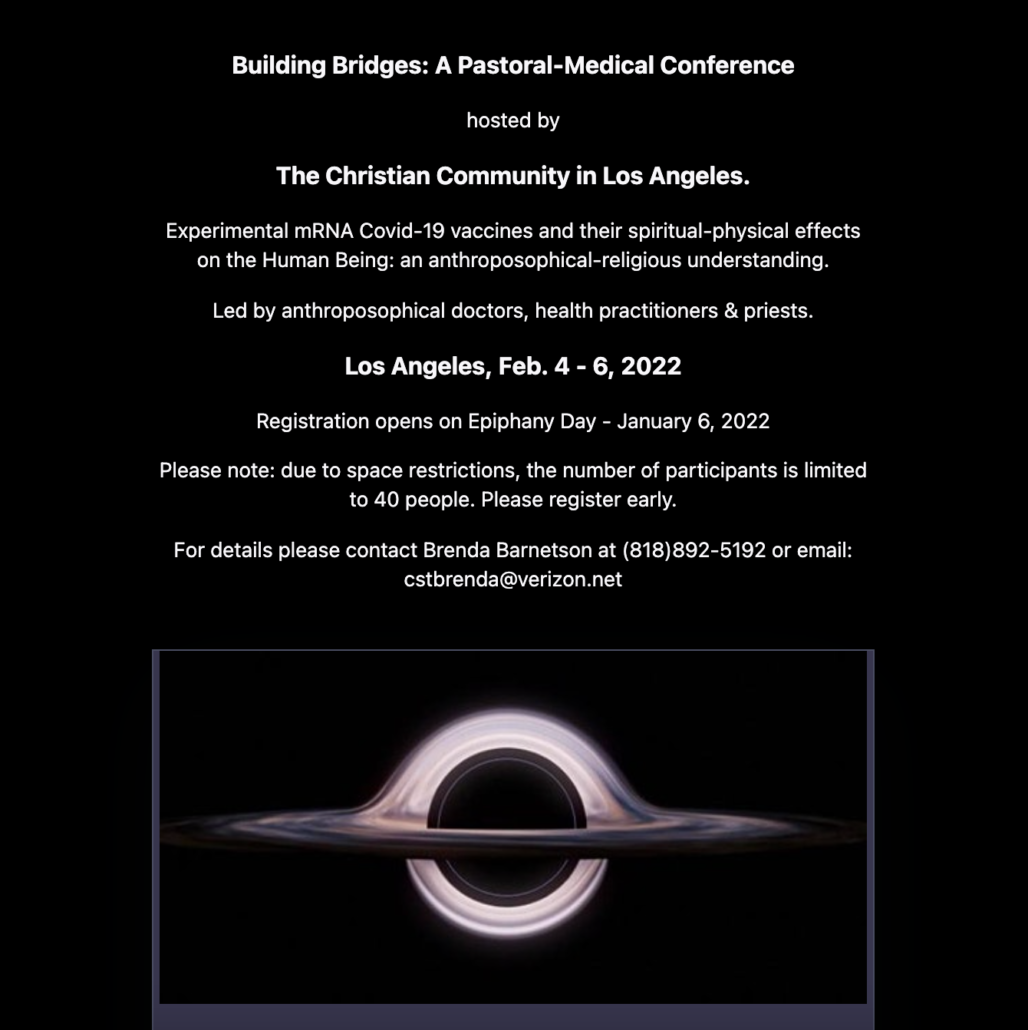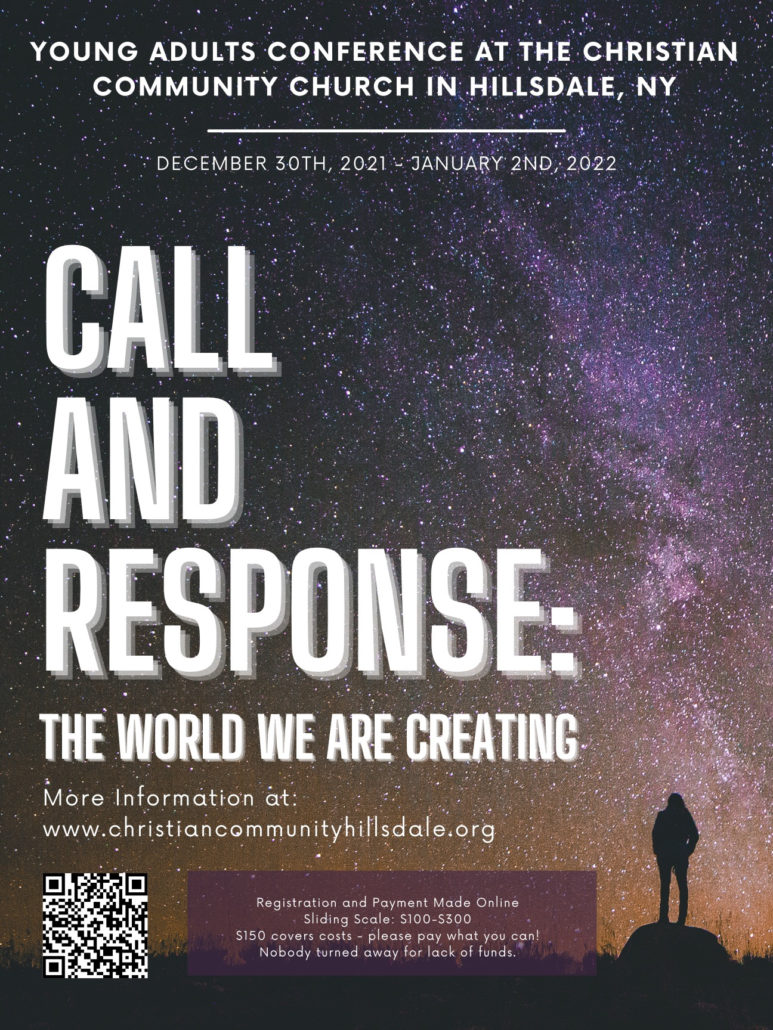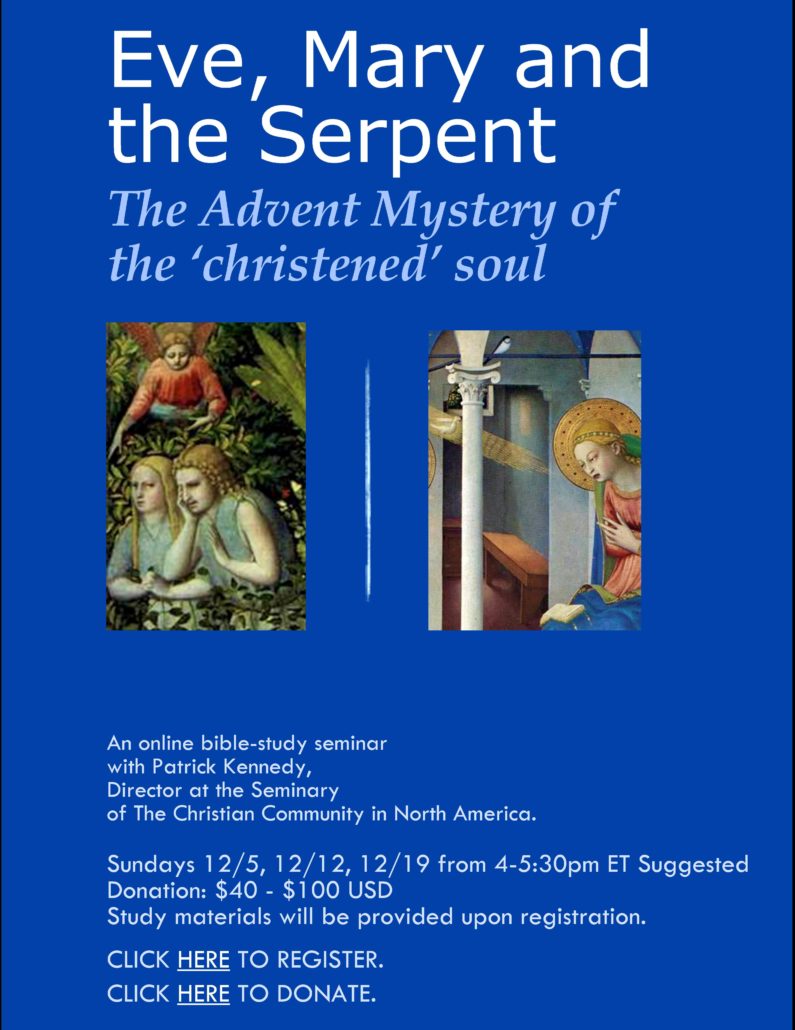Like Finds Like
In the best sense of the word you can say this of the Three Kings, who recognize in Jesus the highest king, even before they have found him on earth:
“Where is the newborn child who is destined to be king of the Jews? We saw his star in the realms of the East and have come to bow down to him.” (Mat.2:2)
As a king, you don’t bow down to another king—unless he has the highest power, as King of Kings. The three wise men, priests, recognize this power, long before John in his Apocalypse has his vision of the highest King (Rev. 19:16).
In the Act of Consecration of Man there is one sentence that brings this power to perfect expression. Rarely or never do we realize the reach of this one sentence, which sounds repeatedly in every communion: “You, who bear and order the life of the world…” Christ is the key to the life of the world. Everyone and everything that lives in the world owes his existence to Him. Can we ever imagine that He bears the life of billions of people on earth, even the unbearable? Can we ever imagine that He orders all life on earth, even when it shows chaos and destruction?
Now that is a real King, who permeates all that lives in His realm with His bearing and ordering force! Christ penetrates so deeply into us—even though we do not know it, even though we do not want to know it—that all that lives on earth is His flesh and blood. That is how Christian Morgenstern expresses it in one of his most dramatic poems, in which Christ speaks:
All of you belong to me, in me, Alle gehőrt ihr mit hinein.
All of you in my great being! Alle mit in mein grosses Sein!
For no one am I overweening Will mich vor keinem ȕberheben,
For he is life of my life. Denn er ist Leben von meinem Leben.
Whoever he is and whatever he does, Wer er auch ist and was er auch tut,
He remains my flesh and remains my blood. Bleibt er mein Fleisch und bleibt er mein Blut.
Christ came into the world in order, lifelong, throughout life, in all future cycles of time, to bear and order the burden of life. But His task on earth can only be completed if we, each one of us with the means at our disposal, help Him bear and order—we, together with Him. Christ came into the world to rescue what could be rescued, to redeem what longs for redemption: in us, through us, with us.
-Rev. Bastiaan Baan, January 9, 2022
Building Bridges: A Pastoral-Medical Conference
/0 Comments/by CCNAHappy New Year
When the new year has begun, we traditionally wish each other a Happy New Year. That sounds nice—but these days you have to wonder whether that wish is still realistic. Actually, we already know, don’t we, that the new year won’t be as happy as we wish it for each other.
Our future is overshadowed by the ballast of the past, by unfinished business, by lingering conflicts and crises. We bring all of that with us into the new year without much prospect of improvement, let alone miracles. At best we could wish someone happiness with unhappiness for the new year, in the hope that the damage will remain limited.
Or does perhaps the unhappiness, which has our entire humanity in its grip, still have something else in store for us?
A century ago, Michael Bauer, one of the most prominent modern mystics, described a memorable encounter with the angel of suffering, who came to bring him unhappiness. He writes:
“Once, when I was visited by suffering, I was so awake that I could see the messenger of God. To my surprise I noticed that he was holding his right hand behind his back, as if he was hiding something in it.
‘May I know what you are hiding?’ I asked.
‘Not yet entirely,’ he answered. ‘But what I can tell you is that it is something precious that gives joy.’
‘Are you then not only the angel of suffering, but also of joy?’
‘Certainly, how could I be an angel if I would only bring suffering?’
‘For whom is the joy intended that you are hiding in your hand?’
‘For you.’
‘For me? O, when can I get it?’
‘As soon as you trust and your soul is stilled.’”
Perhaps that is the best thing we can wish each other for the future: trust in the spiritual world, in order to welcome the angel of joy and suffering with a stilled soul. For also in suffering, also in unhappiness, yes, even in ill fate the angel of destiny goes with us, all the days, to the end of the world.
Rev. Bastiaan Baan January 2, 2022
Building Bridges: A Pastoral Medical Conference
/0 Comments/by CCNACall and Response: Young Adults Conference in Hillsdale, NY
Three days of conversation, contemplation, and activity around questions about Responsibility as we enter into a new year. What is our responsibility to ourselves, to our community, and ultimately to the spiritual world?
For young adults aged 19+
Featuring local artists, thinkers, and priests of the Hudson Valley area.
With a talk by Charles Eisenstein.
Parable of the Ten Maidens – Matthew 25: 1-13
“Then the kingdom of heaven shall be compared to ten maidens who took their lamps and went to meet the bridegroom. Five of them were foolish and five were wise. For when the foolish took their lamps, they took no oil with them; but the wise took flasks of oil with their lamps. As the bridegroom was delayed, they all slumbered and slept. But at midnight there was a cry, ‘Behold, the bridegroom! Come out to meet him.’ Then all those maidens rose and trimmed their lamps. And the foolish said to the wise, ‘Give us some of your oil, for our lamps are going out.’ But the wise replied, ‘Perhaps there will not be enough for us and for you; go rather to the dealers and buy for yourselves.’ And while they went to buy, the bridegroom came, and those who were ready went in with him to the marriage feast; and the door was shut. Afterward the other maidens came also, saying, ‘Lord, lord, open to us.’ But he replied, ‘Truly, I say to you, I do not know you.’ Watch therefore, for you know neither the day nor the hour.”
Everything and everyone in the world around us wants to be known, recognized, acknowledged. As long as that is not the case we stand before a closed door and before riddles. Now, the greater part of our life consists of riddles. We should not have the illusion that those can all be solved. But what we can do is, step by step, conscious of our ignorance, unveil the riddles—knowing that only when we have died, will we stand face to face. That modesty has an ancient name: learned ignorance, docta ignorantia.
This is depressing for most people, and they give up the search—See? We’ll never know it; all the effort is in vain. But like Sleeping Beauty the world around us is waiting to be awakened: known, recognized, acknowledged. With every attempt in that direction, no matter how humble, we find a little bit of our destination, both we and the world around us. The poet expressed it in the words: “A song is sleeping in all things, which are dreaming on and on, and the world begins to sing, when you only find the magic word.”*
Woe to the one who like a sleepwalker wanders through the world all his life without making any effort to get to know anything or anyone. When such a person comes to the end of a senseless life, the door closes and the painful words resound: I do not know you.
The Son of Man, who wants to connect as a bridegroom with every single one of us, goes from human being to human being, seeking light, spiritual light on earth. And even if he finds but a tiny spark of light, sooner or later the door will open and He invites us to the marriage of heaven and earth.
Then we will wholly know, as we are known.
–Rev. Bastiaan Baan, December 12, 2021
*Schläft ein Lied in allen Dingen
Die da träumen fort und fort
Und die Welt fängt an zu singen
Triffst du nur das Zauberwort.
–Joseph von Eichendorff
An On-line Advent Course Offering by Patrick Kennedy
You are invited to participate in the coming Advent Course offered by Patrick Kennedy.
Click Here To Register
Click Here To Donate
If you have further questions, contact Camilla Lake
for the Friends Circle here.
How can we become a lampstand? Revelation 1:20
The seven stars are the angels of the seven congregations,
and the seven lampstands are the seven congregations themselves. (Revelation 1:20)
Through the centuries people have pictured the divine world as a world of light and fire. The higher a person can look up, the more radiant is the light, the more scorching the fire. It is no coincidence that the highest angels have the name of seraphim—it means the flaming ones. When the prophet Isaiah received his calling, it had to be by a seraph touching his lips with a glowing coal from the altar of God. Then only was he able to bring the fire of the spirit to the earth and prophesy.
We people of our time are no match for prophets—let alone seraphim. For us to bear the fire of the divine world it has to be tempered down to a modest flame. But even then, when an angel or an angel of the congregation brings this fire to the earth, it needs an earthly bearer, a lampstand. If it found no bearer it would withdraw again to its own realm. But where no angels can dwell, there is room for fallen angels, for demons.
How can we become a lampstand? How can we unite our forces so that the fire of the spirit can get a place on earth?
The most precious thing we can give the spiritual world is our service, our worship service. The question is not whether or not at the altar the fire of the spirit is kindled. The angel of the congregation is already present before the first words of the Act of Consecration are spoken. The question is, every time anew, whether we are able to unite our forces in common prayer.
It is no secret that some people in our congregations often have a difficult time with each other, that they annoy each other. That is not to be wondered at; after all, we did not choose each other. Coincidence—or perhaps the Lord of coincidence—brought us together seemingly arbitrarily. The Christian Community does not consist of saints, but of people. Just like the rest of the world, we have to find a way to make it together.
Am I ready to unite in prayer, not only with people who are dear to me, but also with those whom I dislike, who are an obstacle on my path? Then only does a congregation become a lampstand. Then can the Act of Consecration of Man be worthily fulfilled.
-Rev. Bastiaan Baan, October 31, 2021
The Key Power of the I
The Key Power of the I
At all possible times the world, with all that goes wrong in it, pushes itself into our lives and demands our attention. Illness, famine, climate crisis, conflicts, and wars—we cannot escape from alarming reports. Closing ourselves off from them is of course not the solution. That would in the long run make us unsociable outsiders.
But from time to time, we do need a key to close the door, so we are not inundated by the tidal wave of misery the world pours over us every day. The more we are confronted with this, the more does a feeling of impotence threaten to paralyze us.
The Apocalypse has a name for this key that can create boundaries for us: “The key of David, who opens and no one shall shut, who shuts and no one opens.” (Rev.3:7)
To keep our footing in the whirlpool of events we have to close the door time and again and check in with ourselves before we let the world come into us again. Only in that way can we let life penetrate into us without losing ourselves in it. This holds true for everyone and everything that comes to meet us from outside. Out of self-preservation we often have to say: “Not right now.” “The key of David, … who shuts and no one opens.”
It is not only needed to shut out the world, but also to open our own inner space and check in with ourselves. “The key of David, who opens and no one shall shut …” What should I do? What is being asked of me right now? When we want to serve the world it is more than ever necessary to take ourselves in hand, to become lord and master over ourselves as kings in our own realm.
In this kingdom, Christ wants to continue His creation on earth—as “King of kings and Lord of lords.” (Rev.19:16)
-Rev. Bastiaan Baan, October 24, 2021



